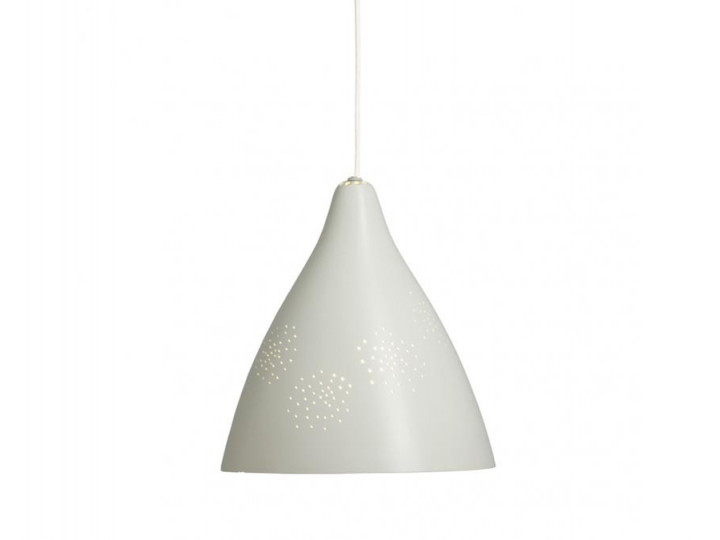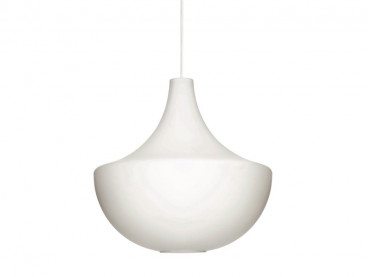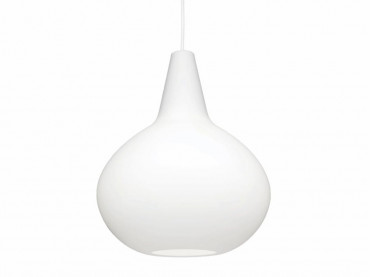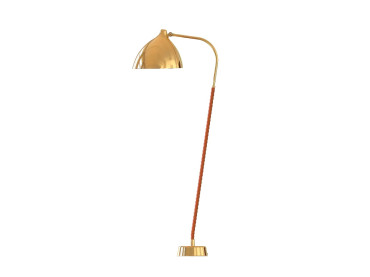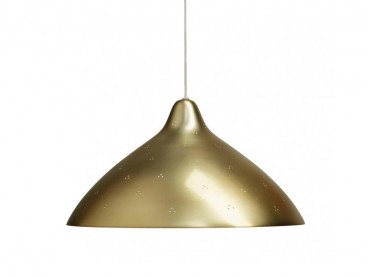Lisa Pendant 270. New edition
-
Lisa Johansson-Pape
-
Innolux
- INL06 Delivery time : 2 to 3 weeks
Lisa Pendant 450. The style of the Innolux Lisa pendant lamp, designed by Lisa Johansson-Pape, is charming in its simplicity and delicate perforated decorations. The white interior of the metallic shade efficiently reflects the light downwards. Light also filters beautifully through the perforated shade. This lamp is particularly suited for use above the dining table. It is available in white and brass in two different sizes.
| Year | 1947 |
| Dimensions | Ø 26,5 cm. H : 28,5 cm. Cord lenght : 2m. |
| Material | Arcylic. Brass. |
| Style | Classique Neuf |
| Origin | Finland |
| Fournisseur | Innolux |
Lisa Johansson-Pape
Furniture, textile and interior designer
Lisa Johansson-Pape’s career as a designer was long and varied. Johansson-Pape’s career in the design of light fixtures began in 1942 when she designed a number of contemporary design light fixtures for the Stockmann-Orno
design light factory, among others. Johansson-Pape also served as artistic director at Orno. ”It was quite by accident that I became a design light artist. By education, I am a furniture designer, but I had to make lamps during the
war. The light fixtures began to interest me to such an extent that I set aside furniture design. I am slightly more interested in lamps and light than in design. I wish to provide every Finnish household with good light”.
The materials used in the light fixtures she designed included enameled metal, acrylic and glass. Johansson-Pape’s lamp designs always stressed technical functionality and practical use. Lisa Johansson-Pape began to collaborate with the glass blowers at the Iitala glass factory in the 1950s. A new collection of glass lamp designs was born through these experiments. Johansson-Pape designed light fixtures for many public spaces, such as hospitals, churches and ships. Lisa Johansson-Pape’s works represented Finland in many international exhibitions, dating from the 1930s. Her lamps received awards at the Milan Triennials in 1951 with a silver medal and in 1954 with a gold medal in design.
“A lamp is not the actual purpose, but more like an instrument. It must fulfil its purpose as a provider of light, but at the same time it must also satisfy the aesthetic demands. A good light fixture must be simple and its structure and function must be both neat and correct”.

